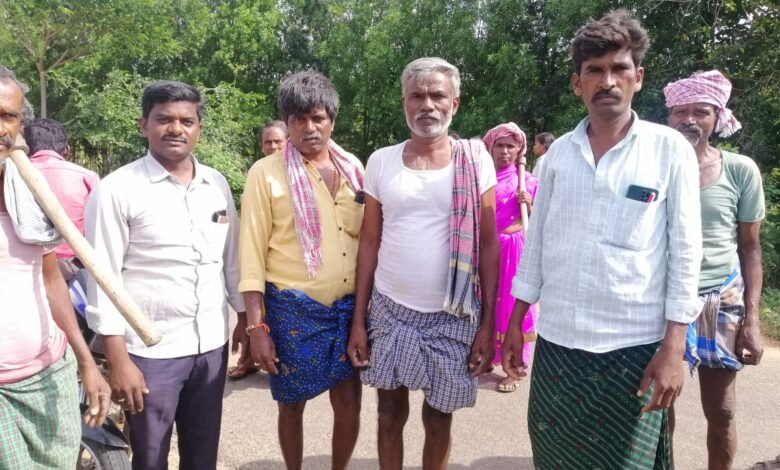MGNREGS workers toil without wages for 75 days !!!
By Doruvu Paul Jagan Babu : Bureau Chief-South

Andhra Pradesh: For the past 75 days, the Mahatma Gandhi National Rural Employment Guarantee Act (MGNREGA) workers in Bandur Panchayat, Bommanahal Mandal of Anantapur District, have been facing immense hardship due to delayed wage payments.
Voices from the ground
Guruswamy (58), Kuruba Padmavati (45), Obulapuram Onnuruswamy (40), and a score of other MGNREGS workers narrated their woes. “We haven not been paid for ten weeks now. Delays are a recurring issue, but this time it is unbearable. With no rains and no farming work available, we solely depend on MGNREGA wages to make ends meet,” they expressed in despair.
Their frustration stemmed from not just the delayed wages but also the lack of basic necessities like essential tools, payslips, and even water and medical kits for emergencies. They demanded a raise in their daily wages to Rs 600, citing rising market rates and an increase in the cost of essential commodities.
Acknowledging the Issues
Cherukuri Om Sekhar, the Field Assistant, admitted to the workers’ grievances. “We have 180 MGNREGS workers registered under Bandur Panchayat. We ensure they get their 100 days of work. After attendance is recorded, we upload the details online for the central government to transfer their payment directly to their accounts through the Aadhaar-based payment system,” he explained.
However, the delays persist, causing significant hardship. The Panchayat Secretary M K Naidu confirmed that their issues would be addressed by the Additional Program Officer.

Statewide struggle
The plight of Bandur Panchayat workers is not in isolation. MGNREGS workers across Andhra Pradesh are grappling with delayed wages, leading to frequent protests demanding timely payments. An official, on condition of anonymity, shed light on the systemic challenges. “We report these issues to higher authorities, but concrete action is needed to resolve them. While the Aadhaar-based Payment System (ABPS) has curbed corruption to some extent, delays persist,” he said.
MGNREGA Scheme: A lifeline for rural economy
The Mahatma Gandhi National Rural Employment Guarantee Act (MGNREGA), enacted in 2005, guarantees 100 days of work to unskilled rural workers, aiming to strengthen rural economic security and curb migration to cities. The scheme is entirely funded by the central government, covering unskilled labor costs and 75% of the material costs.
With over 28 crore workers employed under MGNREGA in 2020-21, out of which 14.49 crore are active, the scheme has been instrumental in empowering rural India.
A call to action
The Gram Sabha plays a pivotal role in prioritizing works, monitoring execution, conducting social audits, and addressing workers’ concerns. The Gram Panchayat is responsible for receiving job applications, verification, registration, issuing job cards, work allotment within 15 days, and preparing annual reports.
MGNREGS workers have demanded adequate funding for projects, timely disbursement of wages, scrapping the mandatory attendance monitoring through the National Mobile Monitoring System (NMMS) app, and revoking the ABPS.
Accountability and the way forward
Experts point that eradicating corruption in MGNREGA requires strengthening social audits. A thorough examination of the reasons behind ineffective fund management is crucial, followed by corrective measures. Stringent legal action must be taken against officials who misuse funds. Raising awareness and ensuring inclusivity are essential to enhance the participation of women and underprivileged sections of society.
The struggles of MGNREGS workers in Bandur Panchayat serve as a stark reminder of the urgent need to address systemic issues and ensure timely payments and improved working conditions for these vital contributors to the rural economy.




